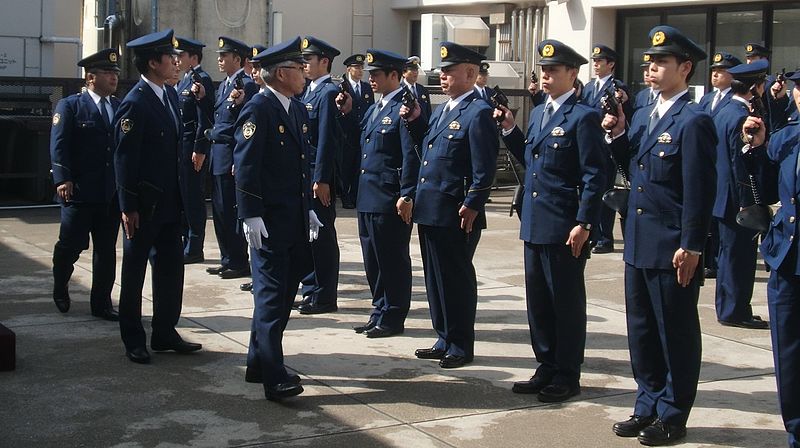NOTICE:
I
will post a quote or article from a Christian in favor of capital punishment
every fortnight. On this date, 22 June 1714, one of my favorite theologians,
Matthew Henry died. To honor and remember him for his works, I will post the Christian
Quote for the Death Penalty of the Fortnight from him.
QUOTE: Matthew
Henry considered the commandment against killing to apply to both one’s own
life as well as the life of one’s neighbor and considered it to apply not only
to causing of death but also to prohibit any thing unjustly hurtful to or
injurious to the health, ease, and life of one’s own body or the body of any
other person. He also ties the commandment against bloodshed back to the
command to Noah, and he sees it as a command applying to the individual against
his neighbor, but not against killing in lawful war, for one’s own necessary
defense, or against the government instituting due punishments for criminal
offenses. He portrays laying in wait for the blood of the innocent as a grave
offense against human dignity as one of the fundamental laws of nature.
This is one of
the laws of nature, and was strongly enforced by the precepts given to Noah and
his sons, Gen. 9:5, 6. It does not forbid killing in lawful war, or in our own
necessary defence, nor the magistrate’s putting offenders to death, for those
things tend to the preserving of life; but it forbids all malice and hatred to
the person of any (for he that hateth his brother is a murderer), and all
personal revenge arising therefrom; also all rash anger upon sudden
provocations, and hurt said or done, or aimed to be done, in passion: of this
our Saviour expounds this commandment, Mt. 5:22. And, as that which is worst of
all, it forbids persecution, laying wait for the blood of the innocent and
excellent ones of the earth.
AUTHOR: Matthew Henry (18 October 1662 – 22 June 1714) was an English
commentator on the Bible and Presbyterian minister. He was born at Broad Oak,a
farmhouse on the borders of Flintshire and Shropshire. His father, Philip
Henry, had just been ejected under the Act of Uniformity 1662. Unlike most of
his fellow-sufferers, Philip possessed some private means, and was thus able to
give his son a good education. Matthew went first to a school at Islington, and
then to Gray's Inn. He soon gave up his legal studies for theology, and in 1687
became minister of a Presbyterian congregation at Chester. He moved again in
1712 to Mare Street, Hackney. Two years later (22 June 1714), he died suddenly
of apoplexy at the Queen's Aid House (41 High Street) in Nantwich while on a
journey from Chester to London.
Matthew Henry's
well-known six-volume Exposition of the Old and New Testaments
(1708–1710) or Complete Commentary, provides an exhaustive verse by
verse study of the Bible. covering the whole of the Old Testament, and the
Gospels and Acts in the New Testament. After the author's death, the work was
finished (Romans through Revelation) by thirteen other nonconformist ministers,
partly based upon notes taken by Henry's hearers, and edited by George Burder
and John Hughes in 1811.
Henry's commentaries
are primarily exegetical, dealing with the scripture text as presented, with
his prime intention being explanation, for practical and devotional purposes.
While not being a work of textual research, for which Henry recommended Matthew
Poole's Synopsis Criticorum, Henry's Exposition gives the result
of a critical account of the original as of his time, with practical
application. It was considered sensible and stylish, a commentary for
devotional purposes.
Famous
evangelical Protestant preachers such as George Whitefield and Charles Spurgeon
used and heartily commended the work, with Whitefield reading it through four
times - the last time on his knees. Spurgeon stated, "Every minister ought
to read it entirely and carefully through once at least."
Henry's Miscellaneous
Writings, including a Life of Mr. Philip Henry, The Communicant's Companion,
Directions for Daily Communion with God, A Method for Prayer, A Scriptural
Catechism, and numerous sermons, the life of his father, tracts, and biography
of eminent Christians, together with the sermon on the author's death by
William Tong were edited in 1809; and in 1830 a new edition included sermons
not previously included and Philip Henry's "What Christ is made to
believers". The collection was issued several times by different
publishers.
Several abbreviated
editions of the Commentary were published in the twentieth century; more
recently the Christian linguist and author of reference books, Martin H.
Manser, edited a version in modern English: The New Matthew Henry Commentary:
The Classic Work with Updated Language (Zondervan 2010).
PLEASE GO TO THIS BLOG POST TO SEE HIS COMMENTARY ON GENESIS 9
VERSE 6.


No comments:
Post a Comment